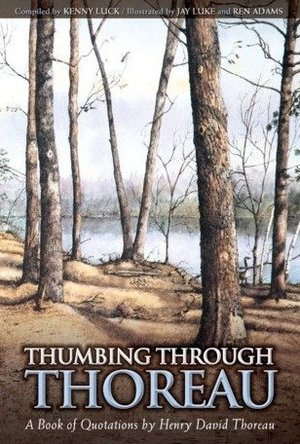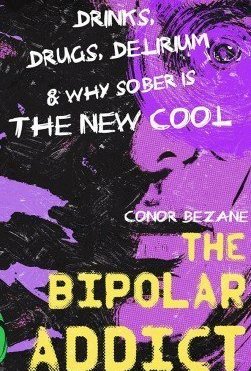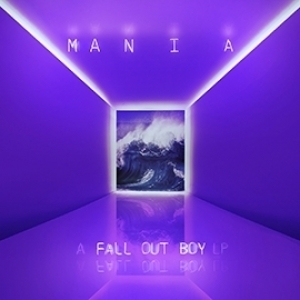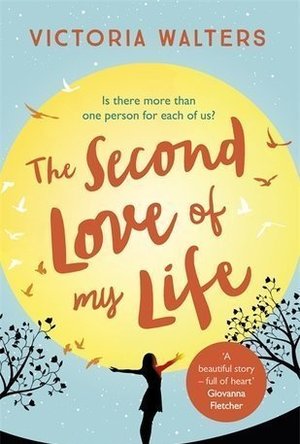Search
Search results

iCarConnect HD - the best on-board computer for your car
Navigation and Entertainment
App
iOS in the Car is here in your hands! With iCarConnect HD driving has never been so safe and...
Rolando Jesus Feliciano (3 KP) rated the PlayStation 4 version of Shantae Half-Genie Hero in Video Games
Apr 27, 2018
Humor (3 more)
Audio quality
Simple platforming
Great DLC
Simple everything else (1 more)
Too Short
For the love of frog, no more Rule 34 on this series
Ok I've held off on this. Really held off. The DLC sold me though so that's my excuse. Half Genie Hero is the fourth entry in the Shantae series. I really want to say something good about the main game but I can't. It's simple. That's it. It tries to be a combination of collectathon and Metroidvania but unlike Pirate's Curse, this game misses the mark. Granted there are strong points, the platforming is fun, decent storyline, wonderful music (just try getting that first stage song out of your head). However after a bit the gameplay becomes repetitive. Go through a stage, collect the things, beat the boss, then backtrack for quest specific items to unlock the next area, rinse and repeat. At least they didn't butcher the game's true waifu Rottytops, ok maybe putting her in race girl gear might have Deviant Art fans getting creative, if not those artists on R34 (please don't damage this series any more guys, please). I mean look at the fact that in its previous entry they fleshed her character out...figuratively and literally. The game does end rather abruptly in a sense, and.... WayForward, why? Not once but twice you call back to Mega Man 8 and that boarding segment. I don't want to hear anyone tell me, they didn't really, because WayForward knew. They have a blasted trophy that you can earn for perfectly completing that segment called "Jump Jump Slide Slide" y'all did that on purpose and my ptsd kicked right in when I first saw the segment. That said, lets move on to the DLC. I loved the content. The friends content have me more story for the main part of the game and the Risky dlc was like going back to Pirate's Curse. However save for certain slides, I won't spoil the game. Then we have the costume pack... First the ninja dlc allows you to play as Specter Knight somewhat giving you an amazing bit of action. That ending does get you real bad that when I saw the Gaijin Goomba reaction in his latest video, I could not stop laughing. The bikini dlc finally gave me something I wanted, a challenge. Forget going through with all the hearts, give me three and the chance that I could lose them all if I don't keep her cool. This dlc is perfect in awakening my speed run skills. Finally we have Officer Shantae. If you have only played this series and Shovel Knight, go get Mighty Switch Force because this is an amazing clone of it, music and all. Overall I feel that the dlc packs saved the game. I can't begin to think the game was a waste of cash if they didn't exist. Let's hope if there is a fifth entry, they up the challenge and give it more a metroidvania style. Step back to Pirate's Curse WayForward and go from there.
Rachel King (13 KP) rated Thumbing Through Thoreau: A Book of Quotations by Henry David Thoreau in Books
Feb 11, 2019
The cover of the book is taken from a beautiful painting of Walden Pond in Concord, Massachusetts where Henry David Thoreau lived and wrote. Unfortunately, the artwork on nearly every page in the text is not nearly as attractive or colorful, and seems rather repetitious after 50 pages or so. According to the cover, Jay Luke's artwork is on the even-numbered pages and Ren Adam's artwork is on the odd-numbered pages, though truthfully I could not distinguish between the two artists' styles.
The book is divided into three sections that each of the quotes could be filed under: "Society & Government", "Spirituality & Nature", and "Love." The quotes that Kenny Luck compiled were indeed thought-provoking. When examining the collection as a whole, I could imagine the kind of man that wrote these words day in and day out. As Luck states: "This book... is my attempt to bring together the best pieces of Thoreau's writings in one collection." Before reading this book, I was not overly familiar with Thoreau's work, and afterwards I realized that the man Thoreau has much in common with my own husband. But I digress.
Some quotes were familiar, such as this one:
"The mass of men lead lives of quiet desperation."
Many more quotes were unfamiliar, but quite profound:
"I am convinced, that if all men were to live as simply as I then did, thieving and robbery would be unknown."
"What is it [to] be born free and equal, and not to live? What is the value of any political freedom, but as a means to moral freedom?"
"A written word is the choicest of relics."
"The day is an epitome of the year. The night is the winter, the morning and evening are the spring and fall, and the noon is the summer."
"I suspect that the child plucks its first flower awith an insight into its beauty and significance which the subsequent botanist never retains."
"To be married at least should be the one poetical act of a man's life."
"Love is a severe critic."
"The only way to speak the truth is to speak lovingly; only the lover's words are heard."
What I found especially distracting was how the words within each quote varied in font size and color, almost as if Luck did not trust the reader enough to know how to read the work and felt he had to dictate to the reader where the emphasis lay in each quote. While I can not say for sure if this was the aim, I felt like my intelligence was being belittled and undervalued as I flipped through the pages. Plus, these words are Thoreau's, not Kenny Luck's, and only Thoreau would be able to truly say where the emphasis within each sentence should be. Luck is only presuming to make intelligent guesses. While I respect Luck's obsession, which he describes in his introduction, I think he should allow for the words of Thoreau to stand alone, so that each reader can appreciate Thoreau through his or her own interpretation.
"The fact is I am a mystic, a transcendentalist, and a natural philosopher to boot."
The book is divided into three sections that each of the quotes could be filed under: "Society & Government", "Spirituality & Nature", and "Love." The quotes that Kenny Luck compiled were indeed thought-provoking. When examining the collection as a whole, I could imagine the kind of man that wrote these words day in and day out. As Luck states: "This book... is my attempt to bring together the best pieces of Thoreau's writings in one collection." Before reading this book, I was not overly familiar with Thoreau's work, and afterwards I realized that the man Thoreau has much in common with my own husband. But I digress.
Some quotes were familiar, such as this one:
"The mass of men lead lives of quiet desperation."
Many more quotes were unfamiliar, but quite profound:
"I am convinced, that if all men were to live as simply as I then did, thieving and robbery would be unknown."
"What is it [to] be born free and equal, and not to live? What is the value of any political freedom, but as a means to moral freedom?"
"A written word is the choicest of relics."
"The day is an epitome of the year. The night is the winter, the morning and evening are the spring and fall, and the noon is the summer."
"I suspect that the child plucks its first flower awith an insight into its beauty and significance which the subsequent botanist never retains."
"To be married at least should be the one poetical act of a man's life."
"Love is a severe critic."
"The only way to speak the truth is to speak lovingly; only the lover's words are heard."
What I found especially distracting was how the words within each quote varied in font size and color, almost as if Luck did not trust the reader enough to know how to read the work and felt he had to dictate to the reader where the emphasis lay in each quote. While I can not say for sure if this was the aim, I felt like my intelligence was being belittled and undervalued as I flipped through the pages. Plus, these words are Thoreau's, not Kenny Luck's, and only Thoreau would be able to truly say where the emphasis within each sentence should be. Luck is only presuming to make intelligent guesses. While I respect Luck's obsession, which he describes in his introduction, I think he should allow for the words of Thoreau to stand alone, so that each reader can appreciate Thoreau through his or her own interpretation.
"The fact is I am a mystic, a transcendentalist, and a natural philosopher to boot."
Becs (244 KP) rated The Bipolar Addict in Books
Jun 4, 2019
Very informative!
Rating: ☆☆☆☆.5
Review:
I received a copy to read and review from Smith Publicity for my honest opinion.
TRIGGER WARNINGS: Drug abuse, alcohol abuse, suicide attempts, bullying, sexual abuse.
The Bipolar Addict is broken up into three parts: Part 1 - Conor's Story, Part 2 - Interviews of others who battle with Manic Depression and Bipolar disorder, and Part 3 - Talking of Recovery, getting help, and that sober is the new cool.
Part 1 follows the hardships Conor endured growing up. Bullying which eventually lead to alcohol abuse and then later drug abuse as he grew older. During this time, he also attempted suicide a few times. Conor was then diagnosed with Bipolar disorder, manic depression, and anxiety. Mix all that with alcohol and drug abuse and his body was struggling.
As I read, I was enthralled in the world of what Bipolar disorder really is. I was also blown away with the writing style. The Bipolar Addict is a debut novel by Conor Bezane and he definitely has a way of grabbing your attention and holding it instantly. A first time author, Conor has taken his life and spun it into a tale of struggles, sacrifice, and recovery that will tear the readers heart out, rip it into pieces, and then piece it back together, little by little.
Part 2 was just as interesting as part 1. You learn about a few others who used and through some rough patches like Conor. Part 3 was more informative compared to parts 1 and 2, talking about sober being the new cool and that it's healthy. The book ends with links and information on different helpful groups in the chance that you need to seek help for yourself.
"We are punks. We are poets. Musicians and artists. Professionals and intellectuals. We are drunk. High. Manic. Depressed. We almost died. And now we are stable and sober."
Reasons why I rated it 4.5 stars:
1. The plot:
There really wasn't much of a plot as this was a memoir/ self-help book. But the way Conor wrote, captivated my attention through and through.
2. My enjoyment:
I surprisingly was really interested in the entirety of this book. I couldn't put it down as Conor captivated me, not only in his writing but also the way he was able to take his life and spin it into a tale that read like he was a friend having a conversation.
3. Character and story development:
Again, this was a memoir/ self-help book, so there wasn't much development as it wasn't needed.
4. Grammar and spelling:
I did notice a few grammatical and spelling errors but for this being a debut, I really didn't mind.
5. The overall story:
The way that Conor wrote, you could feel the pain, loss, and loneliness. The lows of depression and the highs of mania. It was all otherworldly and from someone who has balanced depression and anxiety the majority of my life, I felt the painful and roller coaster of a life that Conor lived. This was definitely worth the read and was highly informative.
"Keep coming back."
Review:
I received a copy to read and review from Smith Publicity for my honest opinion.
TRIGGER WARNINGS: Drug abuse, alcohol abuse, suicide attempts, bullying, sexual abuse.
The Bipolar Addict is broken up into three parts: Part 1 - Conor's Story, Part 2 - Interviews of others who battle with Manic Depression and Bipolar disorder, and Part 3 - Talking of Recovery, getting help, and that sober is the new cool.
Part 1 follows the hardships Conor endured growing up. Bullying which eventually lead to alcohol abuse and then later drug abuse as he grew older. During this time, he also attempted suicide a few times. Conor was then diagnosed with Bipolar disorder, manic depression, and anxiety. Mix all that with alcohol and drug abuse and his body was struggling.
As I read, I was enthralled in the world of what Bipolar disorder really is. I was also blown away with the writing style. The Bipolar Addict is a debut novel by Conor Bezane and he definitely has a way of grabbing your attention and holding it instantly. A first time author, Conor has taken his life and spun it into a tale of struggles, sacrifice, and recovery that will tear the readers heart out, rip it into pieces, and then piece it back together, little by little.
Part 2 was just as interesting as part 1. You learn about a few others who used and through some rough patches like Conor. Part 3 was more informative compared to parts 1 and 2, talking about sober being the new cool and that it's healthy. The book ends with links and information on different helpful groups in the chance that you need to seek help for yourself.
"We are punks. We are poets. Musicians and artists. Professionals and intellectuals. We are drunk. High. Manic. Depressed. We almost died. And now we are stable and sober."
Reasons why I rated it 4.5 stars:
1. The plot:
There really wasn't much of a plot as this was a memoir/ self-help book. But the way Conor wrote, captivated my attention through and through.
2. My enjoyment:
I surprisingly was really interested in the entirety of this book. I couldn't put it down as Conor captivated me, not only in his writing but also the way he was able to take his life and spin it into a tale that read like he was a friend having a conversation.
3. Character and story development:
Again, this was a memoir/ self-help book, so there wasn't much development as it wasn't needed.
4. Grammar and spelling:
I did notice a few grammatical and spelling errors but for this being a debut, I really didn't mind.
5. The overall story:
The way that Conor wrote, you could feel the pain, loss, and loneliness. The lows of depression and the highs of mania. It was all otherworldly and from someone who has balanced depression and anxiety the majority of my life, I felt the painful and roller coaster of a life that Conor lived. This was definitely worth the read and was highly informative.
"Keep coming back."
Maddi Zoe (6 KP) rated MANIA by Fall Out Boy in Music
Feb 8, 2018
feet-tapping tunes (1 more)
light and dark
Fresh new sound, still Fall Out Boy
Fall Out Boy return with their seventh studio album titled 'Mania', which continues to explore their heavy alternative rock sound.
Mania is very similar in sound to Fall Out Boy's previous album from 2015 'American Beauty/American Psycho'. It's a far cry from where they first began with hits such as 'Sugar We're Goin' Down' and 'Dance, Dance'. Although it was classic rock hits such as 'I Don't Care' that brought them out into the spotlight in the first place. But you can clearly see the evolution of their music through each and every album.
They started to turn to heavier rock in their stand out album, 'Save Rock and Roll' in 2013, and continued to explore this style through to their 2015 album. Mania follows again follows this same successful recipe. But it's still fresh, with Pete Wentz describing it as a 'palette cleanse'.
You can tell that Fall Out Boy are passionate about their music. It's taken two years to get this album to a point where they felt happy with the finished product. Patrick Stump and the band started writing the new album during their 2016 tour, and it was originally scheduled for release in September last year. The release was delayed because they felt it was 'too rushed' and they didn't want to give fans something they felt was 'sub-par'.
The lyrics are, as usual, clever and intricate. It is clear that a lot of thought has gone into writing all of these songs. Some songs do again hint towards religion, such as 'Church' and 'Heaven's Gate'. This is becoming a common theme for the band, yet they maintain their heavy ego pop musicality. Fans of the band may also know it is common for the lyrics to sometimes reference other artists or the music industry in general. Anyone with a keen ear will notice the Britney Spears references in 'Young and Menace'.
Stump's voice. It is outstanding. This new album is no different. It is something that makes Fall Out Boy stand out among other bands. It is so crucial, especially in recent years, and Fall Out Boy continue to distance themselves away from bog-standard guitar solos. More often than not they have a bridge that is different to the rest of the song. This gives them more time to show off Stump's incredible and unique voice.
While the album is heavier than the majority of their music, some tracks such as 'Hold Me Tight or Don't', which are a bit lighter, and hint back to their 'old style'. Yet they continue to remain completely fresh. Whilst tracks such as 'Young and Menace' and 'Stay Frosty Royal Milk Tea' almost have a dubstep/dance vibe to them.
All ten tracks on the new album are completely different from one another other. There is something for everyone. It is combines the 'old' Fall Out Boy which we first fell in love with and the 'newer, even fresher' Fall Out Boy. It is yet again, another outstanding album from the band.
Mania is very similar in sound to Fall Out Boy's previous album from 2015 'American Beauty/American Psycho'. It's a far cry from where they first began with hits such as 'Sugar We're Goin' Down' and 'Dance, Dance'. Although it was classic rock hits such as 'I Don't Care' that brought them out into the spotlight in the first place. But you can clearly see the evolution of their music through each and every album.
They started to turn to heavier rock in their stand out album, 'Save Rock and Roll' in 2013, and continued to explore this style through to their 2015 album. Mania follows again follows this same successful recipe. But it's still fresh, with Pete Wentz describing it as a 'palette cleanse'.
You can tell that Fall Out Boy are passionate about their music. It's taken two years to get this album to a point where they felt happy with the finished product. Patrick Stump and the band started writing the new album during their 2016 tour, and it was originally scheduled for release in September last year. The release was delayed because they felt it was 'too rushed' and they didn't want to give fans something they felt was 'sub-par'.
The lyrics are, as usual, clever and intricate. It is clear that a lot of thought has gone into writing all of these songs. Some songs do again hint towards religion, such as 'Church' and 'Heaven's Gate'. This is becoming a common theme for the band, yet they maintain their heavy ego pop musicality. Fans of the band may also know it is common for the lyrics to sometimes reference other artists or the music industry in general. Anyone with a keen ear will notice the Britney Spears references in 'Young and Menace'.
Stump's voice. It is outstanding. This new album is no different. It is something that makes Fall Out Boy stand out among other bands. It is so crucial, especially in recent years, and Fall Out Boy continue to distance themselves away from bog-standard guitar solos. More often than not they have a bridge that is different to the rest of the song. This gives them more time to show off Stump's incredible and unique voice.
While the album is heavier than the majority of their music, some tracks such as 'Hold Me Tight or Don't', which are a bit lighter, and hint back to their 'old style'. Yet they continue to remain completely fresh. Whilst tracks such as 'Young and Menace' and 'Stay Frosty Royal Milk Tea' almost have a dubstep/dance vibe to them.
All ten tracks on the new album are completely different from one another other. There is something for everyone. It is combines the 'old' Fall Out Boy which we first fell in love with and the 'newer, even fresher' Fall Out Boy. It is yet again, another outstanding album from the band.
Gareth von Kallenbach (980 KP) rated the PlayStation 4 version of Call of Duty: Black Ops III in Video Games
Jun 19, 2019
The latest in the incredibly popular Call of Duty Series has arrived and Call of Duty: Black Ops 3 is a nice mix of old and new that goes a long way to combating those who say that each game is basically the same thing with new maps.
Set in a future where combat technology is now imbedded into soldiers, allowing them to hack systems, control machines, and release all manner of electronic warfare, Black Ops 3 is a very ambitious entry into the series. The game also has a great feature that allows players to customize their appearance, weapons, and special features in the campaign instead of just relegating that feature to the multiplayer portion.
As if that was not enough, the game also allows up to four human players to play through the campaign as one unit, which is great for those with new players in the Call of Duty universe in tow.
The campaign is a mixed bag as at times the story is convoluted and the virtual reality based campaigns towards the end become frustrating as well as at times overly difficult.
Graphically the game shines and it is clear that the artists spent considerable love and effort on the game. Just walking around the ready room before missions alone lets one see the incredible level of detail in the game. The levels are pretty impressive as well from secret laboratories in Singapore to high rise locales in Egypt; the future is truly captivating and terrifying as envisioned by Treyarch.
The campaign despite the issues I had with it is not really the selling point of the series, as the multiplayer is where the game truly shines. With multiple formats of online play available as well as numerous maps and the ability to once again customize your weapon loadouts and killstreak rewards, comes a new class system. This allows players to play as a unique character with a special weapon or ability that becomes available to them after a certain amount of time.
While lots of fun, the old Call of Duty imbalances are there which become highly annoying. For instance, you unload a magazine into the chest of an oncoming enemy point blank. You hear the hits taking place, and while being hit, they can stop, draw a bow, and shoot you dead, all the while taking a barrage of machine gun fire. This sort of thing becomes highly frustrating as does the never ending barrage of hackers with their aim bots and other annoyances.
The Zombie mode of the game is a true classic With Jeff Goldblum and other Hollywood stars providing their voices and likenesses to a retro-locale where players can battle the undead.
In all, the game is a nice step forward as if the story of the campaign matched the customization it would really be something epic. But fans of the series know what to expect and Black Ops 3 gives them what they love about the series as well as some new features to push the series forward.
http://sknr.net/2015/11/21/call-of-duty-black-ops-3/
Set in a future where combat technology is now imbedded into soldiers, allowing them to hack systems, control machines, and release all manner of electronic warfare, Black Ops 3 is a very ambitious entry into the series. The game also has a great feature that allows players to customize their appearance, weapons, and special features in the campaign instead of just relegating that feature to the multiplayer portion.
As if that was not enough, the game also allows up to four human players to play through the campaign as one unit, which is great for those with new players in the Call of Duty universe in tow.
The campaign is a mixed bag as at times the story is convoluted and the virtual reality based campaigns towards the end become frustrating as well as at times overly difficult.
Graphically the game shines and it is clear that the artists spent considerable love and effort on the game. Just walking around the ready room before missions alone lets one see the incredible level of detail in the game. The levels are pretty impressive as well from secret laboratories in Singapore to high rise locales in Egypt; the future is truly captivating and terrifying as envisioned by Treyarch.
The campaign despite the issues I had with it is not really the selling point of the series, as the multiplayer is where the game truly shines. With multiple formats of online play available as well as numerous maps and the ability to once again customize your weapon loadouts and killstreak rewards, comes a new class system. This allows players to play as a unique character with a special weapon or ability that becomes available to them after a certain amount of time.
While lots of fun, the old Call of Duty imbalances are there which become highly annoying. For instance, you unload a magazine into the chest of an oncoming enemy point blank. You hear the hits taking place, and while being hit, they can stop, draw a bow, and shoot you dead, all the while taking a barrage of machine gun fire. This sort of thing becomes highly frustrating as does the never ending barrage of hackers with their aim bots and other annoyances.
The Zombie mode of the game is a true classic With Jeff Goldblum and other Hollywood stars providing their voices and likenesses to a retro-locale where players can battle the undead.
In all, the game is a nice step forward as if the story of the campaign matched the customization it would really be something epic. But fans of the series know what to expect and Black Ops 3 gives them what they love about the series as well as some new features to push the series forward.
http://sknr.net/2015/11/21/call-of-duty-black-ops-3/
Hazel (1853 KP) rated The Joyce Girl in Books
Dec 14, 2018
<i>I received this book for free through Goodreads First Reads.</i>
Winner of the Impress Prize for New Writers 2015, Annabel Abbs creates a fantastic work of historical fiction based upon the life of Lucia Joyce. Although the titular character may be unheard of within the general public, her father will be known amongst the majority of readers. James Joyce, the eccentric author of<i> Ulysses</i> and <i>Finnegan’s Wake</i>, travelled around Europe with his family until settling in Avant-garde Paris, 1928. His daughter, Lucia, an ambitious, talented dancer describes the unconventional life as a child of Mr. Joyce, its ups and downs, and inevitable ruinous breakdown.
<i>The Joyce Girl</i> begins in Küsnacht, Zurich where Lucia is receiving treatment from Dr. Carl Jung – another well-known name; this novel is full of them. Struggling to come to terms with her current mental ill health and supposed repressed memories, Jung encourages Lucia to write her memoirs in order to learn of the events that led to this current predicament. Starting from 1928, aged 21, Lucia describes her life to Jung and the reader in brutally honest detail.
The unusual Irish family went through various successes and traumas in the intervening years, creating a humorous and emotional story. Lucia’s brother, Giorgio, caused the family enough problems without adding in the devastating heartache Lucia suffers from men who do not reciprocate her love. One of these lovers is the famous Samuel Beckett (<i>Waiting for Godot</i>, 1952), the first man Lucia falls for. It is fascinating to learn of the multiple connections these notable names had with each other. Although in retrospect it makes sense that the literary and artistic crowds would stick together.
From Lucia’s memoirs Jung formulates that the Joyce parents were extremely controlling, not giving Lucia the opportunity to live her own life – particularly within her dancing career. However, Jung still maintains that Lucia experienced emotional trauma and is insistent on retrieving those memories. What he eventually discovers will shock and possibly sicken the reader.
Through enormous amount of research, Annabel Abbs has put together a likely account of the Joyce family, particularly Lucia’s life. Using existing biographies, original letters and professional opinion, Abbs devises a logical narrative for the unfortunate dancer. Drawing upon knowledge of other literary greats and artists of the era, <i>The Joyce Girl</i> can be easily believed to be a true account, although doubtlessly some scenes must be based upon imagination.
<i>The Joyce Girl</i> will attract historical and romantic novel enthusiasts, providing an enjoyable, thought capturing story, as well as an opportunity to learn. Whether you are aware of James Joyce’s works, or even Lucia herself, <i>The Joyce Girl</i> is bound to capture your attention and draw your mind into the European life during the early 1930s. Although only her debut novel, Annabel Abbs comes highly recommended and it will be interesting to see what direction she has decided to take in her shortly expected second novel.
Winner of the Impress Prize for New Writers 2015, Annabel Abbs creates a fantastic work of historical fiction based upon the life of Lucia Joyce. Although the titular character may be unheard of within the general public, her father will be known amongst the majority of readers. James Joyce, the eccentric author of<i> Ulysses</i> and <i>Finnegan’s Wake</i>, travelled around Europe with his family until settling in Avant-garde Paris, 1928. His daughter, Lucia, an ambitious, talented dancer describes the unconventional life as a child of Mr. Joyce, its ups and downs, and inevitable ruinous breakdown.
<i>The Joyce Girl</i> begins in Küsnacht, Zurich where Lucia is receiving treatment from Dr. Carl Jung – another well-known name; this novel is full of them. Struggling to come to terms with her current mental ill health and supposed repressed memories, Jung encourages Lucia to write her memoirs in order to learn of the events that led to this current predicament. Starting from 1928, aged 21, Lucia describes her life to Jung and the reader in brutally honest detail.
The unusual Irish family went through various successes and traumas in the intervening years, creating a humorous and emotional story. Lucia’s brother, Giorgio, caused the family enough problems without adding in the devastating heartache Lucia suffers from men who do not reciprocate her love. One of these lovers is the famous Samuel Beckett (<i>Waiting for Godot</i>, 1952), the first man Lucia falls for. It is fascinating to learn of the multiple connections these notable names had with each other. Although in retrospect it makes sense that the literary and artistic crowds would stick together.
From Lucia’s memoirs Jung formulates that the Joyce parents were extremely controlling, not giving Lucia the opportunity to live her own life – particularly within her dancing career. However, Jung still maintains that Lucia experienced emotional trauma and is insistent on retrieving those memories. What he eventually discovers will shock and possibly sicken the reader.
Through enormous amount of research, Annabel Abbs has put together a likely account of the Joyce family, particularly Lucia’s life. Using existing biographies, original letters and professional opinion, Abbs devises a logical narrative for the unfortunate dancer. Drawing upon knowledge of other literary greats and artists of the era, <i>The Joyce Girl</i> can be easily believed to be a true account, although doubtlessly some scenes must be based upon imagination.
<i>The Joyce Girl</i> will attract historical and romantic novel enthusiasts, providing an enjoyable, thought capturing story, as well as an opportunity to learn. Whether you are aware of James Joyce’s works, or even Lucia herself, <i>The Joyce Girl</i> is bound to capture your attention and draw your mind into the European life during the early 1930s. Although only her debut novel, Annabel Abbs comes highly recommended and it will be interesting to see what direction she has decided to take in her shortly expected second novel.
Hazel (1853 KP) rated The Second Love of My Life in Books
Dec 17, 2018
<i>This ARC was provided by the publisher via NetGalley in exchange for an honest review </i>
Victoria Walters’ debut novel, <i>The Second Love of My Life</i>, is a must read for fans of women’s fiction. Set in a coastal village in Cornwall, Walters explores themes of love, grief and survival in this satisfying narrative.
Rose Walker was once known in her small village for being an up-and-coming artist, however now she is branded as the woman who was widowed at twenty four. The story begins two years after the tragic event involving a car collision between her husband, Lucas, and a drunk driver. Since then Rose has wallowed in her grief and not picked up a paintbrush; therefore the upcoming village fair will be the last time she ever sells her paintings.
A stranger, Robert Green, shocks both Rose and the community by purchasing all of her remaining artwork for an extortionate amount of money. Intrigued by this mysterious man, Rose begins to creep back out of her shell, exploring feelings she has not felt for quite some time. However, just as she believes she cold fall in love again, Robert reveals he is not the man she thought he was.
In a way there are two focuses of this novel. One is Rose’s love life and the other is her artwork. The former is obvious from the title alone. “<i>The Second Love of My Life</i>” suggests that the protagonist has been in love before, and falls in love again. There was a danger of this story becoming predictable: girl is heartbroken, girl meets man, girl falls in love, something bad happens, bad thing is resolved; however the inclusion of Rose’s (former) passion for art gives the book a unique streak.
Many artists will be able to relate to (even if they have never been brokenhearted) the feeling of being unable to produce work – a mental block. <i>The Second Love of My Life</i> reveals the trials Rose goes through in order to get her life back together by forcing herself through the barriers her mind has created in order to deal with her deeper emotions. Although it was Robert that inspired Rose to begin painting again, she does this mostly by herself, showing the reader that she is a strong, capable woman who does not need a man to save her – getting the man is an added bonus.
Whether because this is a first novel, or whether it is Walters’ writing style, there are times when it is difficult to tell what is speech and what is the main character’s internal monologue. Occasionally I found myself wondering whether the lack of speech marks was an editing error or intentional.
<i>The Second Love of My Life</i> has been likened to the works of Cecelia Ahern (author of <i>P.S. I Love You</i>), which is admittedly the reason I chose to read it. Whilst Walters’ writing is not quite up there with the popular authors, there is no doubt that one-day she will be. This is an impressive debut and definitely an author to look out for.
Victoria Walters’ debut novel, <i>The Second Love of My Life</i>, is a must read for fans of women’s fiction. Set in a coastal village in Cornwall, Walters explores themes of love, grief and survival in this satisfying narrative.
Rose Walker was once known in her small village for being an up-and-coming artist, however now she is branded as the woman who was widowed at twenty four. The story begins two years after the tragic event involving a car collision between her husband, Lucas, and a drunk driver. Since then Rose has wallowed in her grief and not picked up a paintbrush; therefore the upcoming village fair will be the last time she ever sells her paintings.
A stranger, Robert Green, shocks both Rose and the community by purchasing all of her remaining artwork for an extortionate amount of money. Intrigued by this mysterious man, Rose begins to creep back out of her shell, exploring feelings she has not felt for quite some time. However, just as she believes she cold fall in love again, Robert reveals he is not the man she thought he was.
In a way there are two focuses of this novel. One is Rose’s love life and the other is her artwork. The former is obvious from the title alone. “<i>The Second Love of My Life</i>” suggests that the protagonist has been in love before, and falls in love again. There was a danger of this story becoming predictable: girl is heartbroken, girl meets man, girl falls in love, something bad happens, bad thing is resolved; however the inclusion of Rose’s (former) passion for art gives the book a unique streak.
Many artists will be able to relate to (even if they have never been brokenhearted) the feeling of being unable to produce work – a mental block. <i>The Second Love of My Life</i> reveals the trials Rose goes through in order to get her life back together by forcing herself through the barriers her mind has created in order to deal with her deeper emotions. Although it was Robert that inspired Rose to begin painting again, she does this mostly by herself, showing the reader that she is a strong, capable woman who does not need a man to save her – getting the man is an added bonus.
Whether because this is a first novel, or whether it is Walters’ writing style, there are times when it is difficult to tell what is speech and what is the main character’s internal monologue. Occasionally I found myself wondering whether the lack of speech marks was an editing error or intentional.
<i>The Second Love of My Life</i> has been likened to the works of Cecelia Ahern (author of <i>P.S. I Love You</i>), which is admittedly the reason I chose to read it. Whilst Walters’ writing is not quite up there with the popular authors, there is no doubt that one-day she will be. This is an impressive debut and definitely an author to look out for.
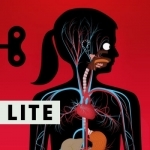
The Human Body Lite
Education and Medical
App
Try the lite version of the award-winning Human Body app for free! Discover what we’re made of...

Statusbrew: Social Media Tools
Social Networking, Productivity and Stickers
App
Share and Schedule posts for Twitter, Instagram, Facebook, LinkedIn and Google+ all from a single...

